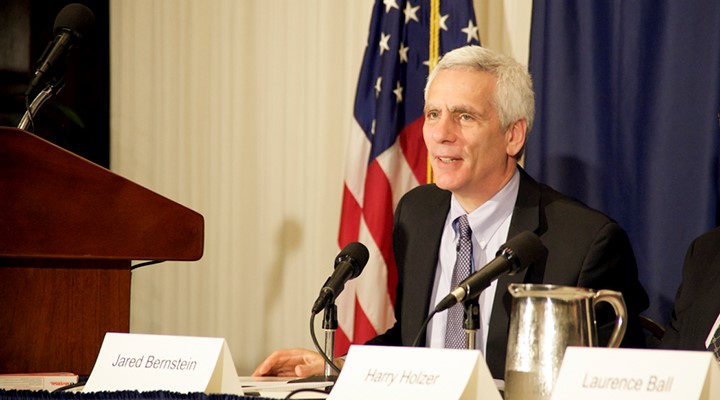Throughout the post, “we” refers to GiveWell and Good Ventures, who work as partners on the Open Philanthropy Project.
Our last major public updates on the Open Philanthropy Project were our May and June posts on global catastrophic risks and U.S. policy. This post summarizes our progress since then and where we currently stand on our goal of committing to causes.
Summary of currently ongoing activities
- Deep dives on priority causes for U.S. policy. In June, we hired Shayna Strom as our Director of U.S. Policy. Shayna comes to GiveWell from the White House, where she was the Chief of Staff and Senior Counselor at the White House Office of Information and Regulatory Affairs. She is based on Washington, D.C., and she is investigating our two leading contenders for priority causes in U.S. policy – labor mobility and criminal justice reform – at a higher level of depth than any cause investigation we’ve done so far, aiming to get a full lay of the land and develop a preliminary strategy for where we expect to concentrate our grantmaking. She is also aiming to surface more potentially promising causes.
- Shallow- and medium-depth investigations for U.S. policy. Alexander Berger, who previously was conducting shallow and medium investigations within both U.S. policy and global catastrophic risks, is now focused on U.S. policy. He has conducted shallow investigations on several causes (not yet written up) and is currently exploring the spaces of health care policy and U.S. poverty & inequality.
- Global catastrophic risks. Howie Lempel, who previously was focused on investigating and writing about the Pew Charitable Trusts, has been transitioning to a role in which his main responsibility is leading our work on global catastrophic risks. Howie’s main responsibility at the moment is conducting relatively high-depth investigations, including some preliminary grantmaking if warranted, of biosecurity and geoengineering. He also is conducting or managing lower-depth investigations on several other causes, including risks associated with artificial intelligence. In addition, Nick Beckstead, currently at Future of Humanity Institute, is working on a contract basis to conduct shallow investigations of further possible global catastrophic risk areas. Nick will be joining us as a full-time employee in December.
- Critical evidence reviews. We are now working with David Roodman as a contractor focused on critical evidence reviews relevant to the Open Philanthropy Project. He recently completed a draft writeup on immigration and current residents’ wages and is now working on a writeup attempting to quantify the risks of geomagnetic storms.
- Preliminary work on scientific research funding. We have assembled a small team of junior scientific advisors that works with me on preliminary explorations of scientific research funding. Our last update on this front was in 2013, and more updates are forthcoming.
- Other work. In light of our enlarged team, we have spent substantial time improving our procedures for efficiently coordinating on investigations (and particularly grant decisions). We recently finalized another grant that has come out of our (now de-prioritized) co-funding work. We have continued work on our history of philanthropy project and have two case studies pending publication.
Our current plans
Our current focus is on committing to causes within the broad categories of U.S. policy and global catastrophic risks. We’ve published a spreadsheet summary of our current stances on the causes we’ve investigated, and which ones we consider to be the strongest contenders based on what we know today. In brief:
- Within U.S. policy, our top contenders for priority causes are labor mobility and criminal justice reform. We have also done substantial work (including some preliminary grants) on macroeconomic policy.
- Within global catastrophic risks, our top contenders for priority causes are biosecurity and geoengineering, though there are several causes that we see as potential contenders and are still working on investigating, including risks associated with artificial intelligence.
Before committing to causes, we are hoping to:
- Investigate more potential causes at shallow and/or medium depth.
- Do relatively deep investigations of the top contenders, and gain a more tangible sense of what our strategy and grantmaking would likely look like if we committed to these causes.
- Hold convenings in which a small number of people with relevant experience provides feedback on our thinking. We are planning a convening for November in Washington, D.C. on the subject of our priorities within U.S. policy. We are still deciding whether and how to conduct a convening around global catastrophic risks (but currently leaning against doing so).
- Put more thought into how many, and what level, of “commitments to causes” we should make given our current capacity.
We are still hoping to commit to causes in these categories by the end of the calendar year, though we still see this as a stretch goal and see a reasonable probability that we’ll delay by a couple of months. As a lower priority, I am working on investigating possible approaches to scientific research funding, and hope to provide more updates on this front fairly soon.
Grants
Good Ventures has made a number of grants within potential priority causes, largely as a way of exploring what giving opportunities in these causes might look like (more on this idea at a previous post). These grants have been in top contender areas for U.S. policy (labor mobility, criminal justice reform and macroeconomic policy); there are likely to be some grants within some global catastrophic risk areas as well in the near future. A list of grants to date is available here.


